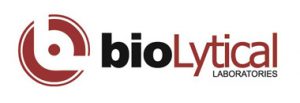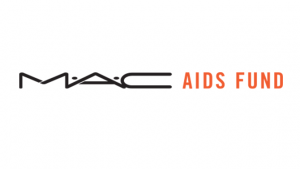Second annual national HIV Testing Day taking place this June in Canada
2018 event resulted in 835 Canadians being tested for HIV
OTTAWA, May 21, 2019 – The national HIV Testing Day event organized by the Canadian AIDS Society (CAS), community-based organizations and local health authorities across Canada will be returning this year on June 27th with testing events happening at various times at local testing sites in 70 communities across the country. ‘’Building on the success of last year, this event is truly about normalizing HIV testing, increasing Canadians’ capacity to make informed decisions regarding their own sexual health, and decreasing stigma’’ says Gary Lacasse, Executive Director of CAS.
HIV Testing Day was created in response to the rising HIV rates being seen in Canada. According to the Public Health Agency of Canada’s 2017 HIV Surveillance Report, there has been a 17.1% increase in the number of new HIV infections in Canada between 2014 and 2017. Stigma and barriers to testing continue to exist, discouraging Canadians from getting tested. The inaugural event in 2018 received national media coverage, raising awareness about the importance of regular testing for HIV and other STBBI. Similarly, a major priority for this year’s event will be to reach the undiagnosed – Canadians who are disproportionately affected by HIV and other STBBI and/or Canadians who have never been tested for HIV and other STBBI.
The theme for this year’s Testing Day is “Know Your Status”. 1 in 5 Canadians living with HIV are unaware that they have HIV. The only way to know for certain if you’re HIV-positive is to get tested. The sooner you know your status the sooner you can be linked to care. Where available, testing sites will be able to provide immediate HIV test results using point-of-care testing kits. In just a minute, a simple finger-prick test is all you need to know your status.
“Despite huge advancements in HIV research, stigma still prevents many people from taking the first step: getting tested. Our 1 minute HIV test is used anywhere from remote outreach settings to busy city testing events, helping to alleviate stigma and other barriers. Being fast and reliable, it provides flexibility to tailor counselling to the person and can help to link more people to care.” – Rick Galli, of bioLytical Laboratories, the maker of INSTI.
A new component of this project will be the presence of U=U spokespeople at various testing sites. U=U (Undetectable=Untransmissible) is an initiative based on the scientific consensus that when you achieve viral suppression from taking HIV medicine and continue to stay at undetectable levels of HIV, you can stay healthy and have no risk of transmitting the virus to others. Where possible, a person living with HIV who is undetectable will be available at participating testing sites to explain the campaign and how someone who is living with HIV can have a healthy sex life and not pass the virus along to others.
This initiative is being organized by CAS and a national steering committee made up of community-based organizations from across the country: the Pacific AIDS Network, the Alberta Community Council on HIV, AIDS Saskatoon, Nine Circles Community Health Centre, the Ontario AIDS Network, COCQ-Sida, ENSEMBLE Greater Moncton (formerly AIDS/Sida Moncton), AIDS Coalition of Nova Scotia, AIDS Committee of Newfoundland and Labrador, the Canadian Aboriginal AIDS Network, and CATIE.
In addition to HIV Testing Day on June 27th, this project will also involve the ongoing initiative of providing sexual health resources to these priority populations through a variety of mediums. A social media educational campaign will be on platforms such as Facebook, Twitter, and Instagram, and will take a holistic approach adapted to the specific cultural needs of priority populations. A toolkit has also been developed by CAS with templates and guidelines for community-based organizations to organize presentations for populations in their communities.
These strategies will sustain the benefits of the national Testing Day initiative and ensure information will be accessible to as many people as possible, to increase testing year-round so more Canadians living with HIV #KnowYourStatus and can take proper precautions to protect themselves and their sexual partners.
Information on the testing site locations is available at www.hivtestingday.ca and will continue to be updated leading up to June 27th. Identify a national HIV Testing Day site near you, get tested and #KnowYourStatus.
Kelly Puddister, National Programs Coordinator
Canadian AIDS Society
613-230-3580, ext. 123 / kelly.puddister@cdnaids.ca
With support from





